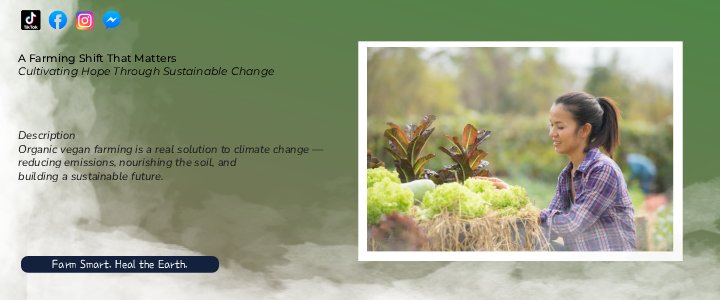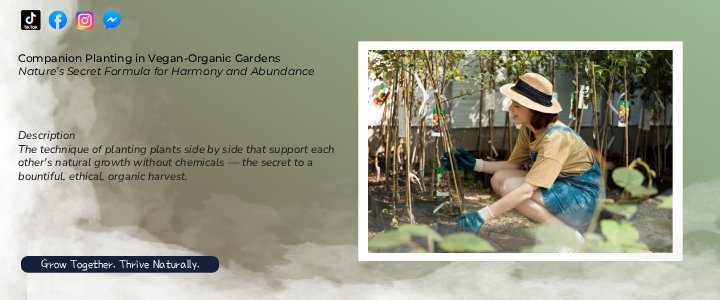What Is Vegan Organic Agriculture?
Vegan Organic agriculture is a method of farming and gardening that avoids all animal-based inputs while focusing on soil health, sustainability, and plant-based fertility. Unlike traditional organic farming, which often uses manure, blood meal, or bone meal, vegan-organic practices rely on plant-based alternatives to enrich the soil and support crop growth.
This approach is gaining attention in both the United States and Europe as more people look for food systems that are not only environmentally friendly but also consistent with vegan ethics.
How Vegan Organic Differs From Traditional Organic Farming
Organic farming standards allow the use of animal waste and byproducts, but Vegan Organic excludes them completely. The key differences include:
1. Fertilizers
- Traditional Organic: Uses manure, bone meal, fish emulsion, and other animal-derived products.
- Vegan Organic: Relies on plant compost, green manure, crop rotation, and mineral-based soil amendments.
2. Ethics and Sustainability
- Traditional Organic: Focuses mainly on avoiding synthetic chemicals.
- Vegan Organic: Expands the idea to exclude animal exploitation while also reducing environmental impact.
3. Soil and Ecosystem Health
- Traditional Organic: Often depends on livestock for fertility cycles.
- Vegan Organic: Builds soil health through plant-based composting, mulching, and biodiversity practices.
Core Principles of Vegan Organic Farming
Plant-Based Soil Fertility
Instead of manure, farmers use compost made from leaves, grass clippings, and food scraps. Cover crops such as clover or legumes are grown to return nutrients to the soil naturally.
Crop Diversity and Rotation
Rotating crops improves soil structure and prevents pests and diseases, reducing the need for animal inputs or synthetic substitutes.
Respect for Animals and the Environment
Vegan Organic avoids animal exploitation entirely. By removing the need for livestock products, it also lowers greenhouse gas emissions and supports a more climate-friendly food system.
Vegan Alternatives to Animal-Based Fertilizers
Here are common Vegan Organic solutions to replace animal inputs:
| Animal-Based Input | Vegan Alternative |
|---|---|
| Manure | Plant compost, mulched leaves, green manure |
| Bone Meal | Rock phosphate, seaweed powder |
| Blood Meal | Alfalfa meal, soybean meal |
| Fish Emulsion | Comfrey tea, nettle fertilizer |
Why Vegan Organic Matters Today
The rise of Vegan Organic agriculture connects to growing consumer demand for ethical and eco-friendly food. Many people want to eat in a way that reflects their values—avoiding harm to animals and reducing environmental impact.
In addition, research shows that plant-based farming can:
- Improve long-term soil health.
- Reduce reliance on industrial livestock systems.
- Lower risks of contamination from pathogens found in animal waste.
Challenges of Vegan Organic Farming
While promising, Vegan Organic also faces challenges:
- Limited certification standards in some regions.
- Lack of awareness among consumers.
- Need for more education on plant-based soil fertility methods.
Despite these challenges, support for Vegan Organic is growing in both the U.S. and Europe.
Conclusion
Vegan Organic agriculture is more than just another way to grow food—it is a farming philosophy that combines environmental responsibility with ethical values. By replacing animal inputs with plant-based alternatives, it offers a sustainable path for the future of agriculture.
As awareness grows, consumers and farmers alike can take part in shaping food systems that are healthier, more ethical, and better for the planet.



